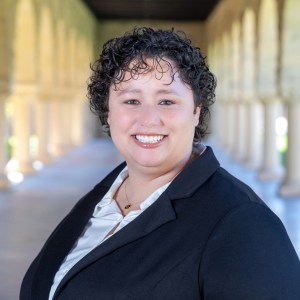
Michelle Faust Raghavan (they/them) is the founder of Claridad Media, a consulting firm that works with newsrooms to strengthen their relationships with communities. Michelle was a John S. Knight Journalism Fellow at Stanford until recently, and continues their work examining best practices to create a culture of belonging for BIPOC journalists in the news industry. Michelle spent about a decade reporting on policy issues for public media stations across the country, and then was the Equity Initiative Manager at the Solutions Journalism Network. Michelle is passionate about mentorship and is actively involved with NPR’s Next Generation Radio project.
Michelle’s vision for the future of digital journalism
As we look into the future, we know journalism will include more artificial intelligence. Tech continues to revolutionize what journalists do–but I am most focused on the parts of the news business that technology cannot replace: our humanity, our relationships, empathetic listening and creating community.
The soul of journalism is people. It’s about journalists who listen and carefully reveal other people’s stories to the world. That’s why I envision a future that invests in community outreach, deep-listening and participatory journalism. Not only do we need more of this work, we particularly need it in marginalized and racialized communities. We need deep listening and community-building that repairs harms that journalism has committed in the past and paves a future with stronger reporting for all people.
Journalists are the ones doing the hard work and journalists are people, too. We all do well to remember the real human needs that journalists have, including our mental health needs. It’s essential that we recognize that not all journalists are facing the same challenges. Our socioeconomic class, race, immigration status, gender, disability status, who and how we love all play a role in what happens to us in the newsroom, in the field, and off the clock. It’s vital that we support each other and provide newsrooms with the tools to better care for all of their people.
Since I started in local public media more than a decade ago, my work has centered on deepening relationships with audiences. I’ve done outreach and engagement projects to improve the diversity of sources and worked to expand who we covered, how we covered them, and to whom those stories spoke. Today, I continue to expand my understanding of engagement and participatory journalism, but I also aim to spread and help strengthen this work in the industry.
That work is hard. Journalists who do it must be supported. I have a track record of work supporting equity, inclusion, diversity and belonging in the news industry. I’ve done it inside and outside the newsroom, advocating for journalism and journalists. I believe that work is the basis for more constructive journalism and functional newsroom cultures for where everyone can thrive.
